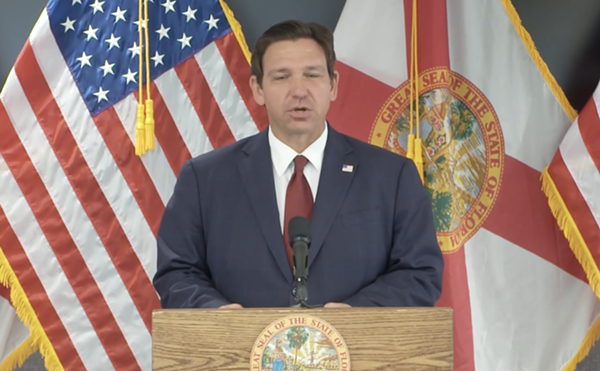Three days after the all-day health care summit at Blair House, the nearly year-old question — can President Obama and Congressional Democrats pass a health care reform bill? — was asked of House Speaker Nancy Pelosi and other officials with skin in the game on the Sunday morning public affairs programs.
The shows also reflected what's been apparent over the past year — that Democrats can't get their act together, as several of their leaders contradicted each other on Sunday talk.
Nancy Pelosi was featured on CNN and ABC's This Week (with Elizabeth Vargas sitting in this week). When asked the critical question about whether she has the votes, Pelosi said it depends on what happens in the Senate initially. Translation: She probably doesn't right now.
When asked if she's ready to pass the bill, even though general health care polls show that the public doesn't favor that now, Madame Speaker said come hell or high water (or more of her members losing in November), health care has to happen now:
PELOSI: Well first of all our members — every one of them — wants health care. I think everybody wants affordable health care for all Americans. They know that this will take courage. It took courage to pass Social Security. It took courage to pass Medicare. And many of the same forces that were at work decades ago are at work again against this bill.
But the American people need it, why are we here? We're not here just to self perpetuate our service in Congress. We're here to do the job for the American people. To get them results that gives them not only health security, but economic security, because the health issue is an economic issue for — for America's families.
But on CBS's Face the Nation, Pelosi's #2 in the House, Maryland's Steny Hoyer, was singing a different tune. He said that the House would probably have to blink first, saying
REPRESENTATIVE STENY HOYER: We—whether we're willing or not, we have to go first if
we're going to correct some of the things that the House disagrees with, correct, change so that
we can reach agreement, the House will have to move first on some sort of corrections or
reconciliation bill, which follows the process that the Republicans followed sixteen out of the last
twenty-two times it's been done for very major pieces including their tax cuts, which were really
a more—
Speaking of reconciliation, we've been hearing more reports that that's the way the president intends to push the bill through the Senate, which means it would require only 51, and not 60 votes. We've heard some Senate Democrats aren't in agreement with that. Too bad for the White House that one of them was North Dakota's Kent Conrad, who told Face host Bob Scheiffer that,
SENATOR KENT CONRAD: Bob, let's just understand the question of reconciliation—question
of reconciliation. I have said all year as chairman of the Budget Committee, reconciliation
cannot be used to pass comprehensive health care reform. It won’t work. It won’t work because
it was never designed for that kind of significant legislation. It was designed for deficit reduction.
So, let’s be clear. On the major Medicare or health care reform legislation, that can’t move to
reconciliation. The role for reconciliation would be very limited. It would be on sidecar issues
designed to improve what passed the Senate and what would have to pass the House for health
care reform to move forward. So, using reconciliation would not be for the main package at all. It
would be for certain sidecar issues like how much does the federal government put up to pay for
the Medicaid expansion? What is done to improve the affordability of the package that’s come
out of the Senate?
All of this is instructive in showing why, with clear majorities in both houses of Congress this year, the Dems haven't been able to push this ball over the goal line.















